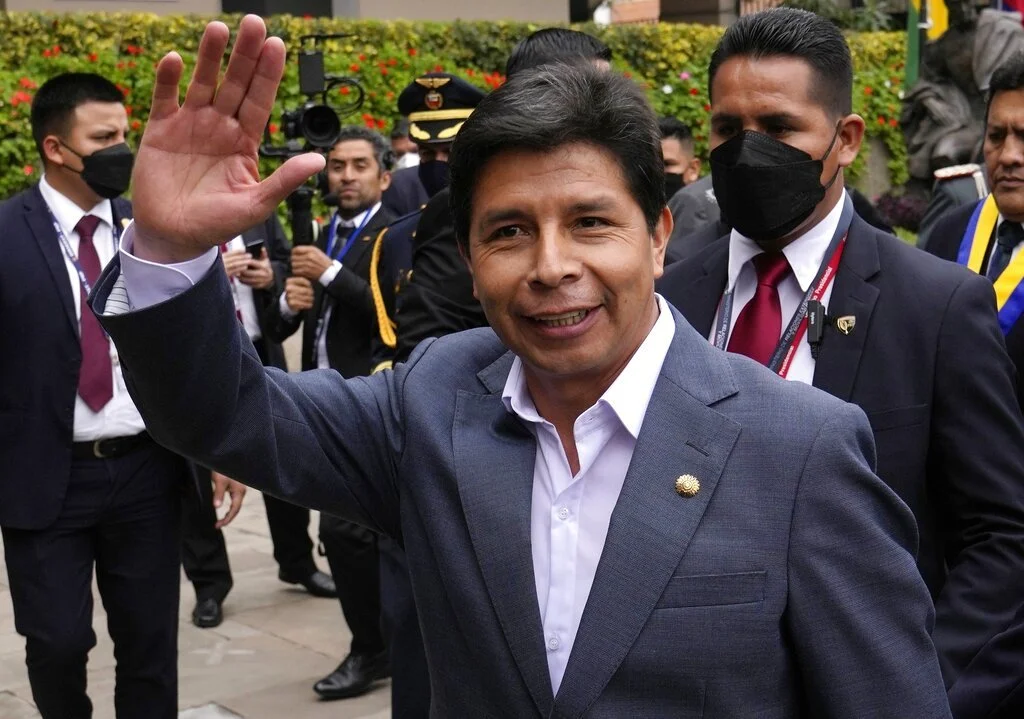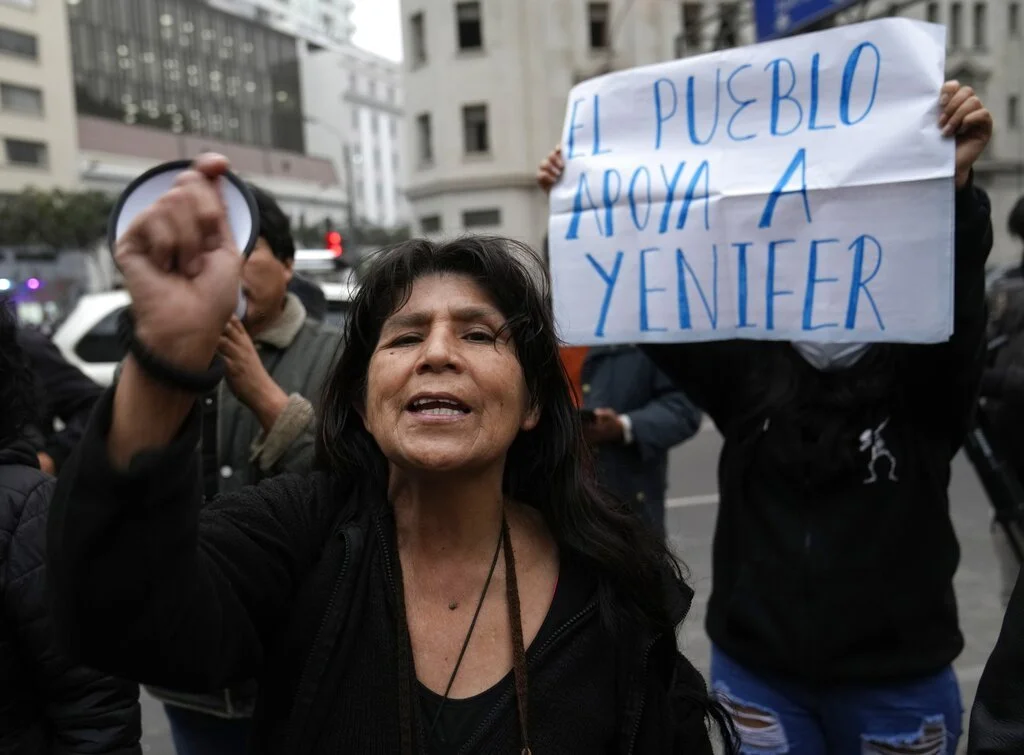Attorney General Files Constitutional Complaint Against Peruvian President, Alleges Corruption Within Government
Pedro Castillo, Peru’s President, at the Andean Community Summit in Lima, Peru. The summit took place on August 22, 2022. Image source: AP Photo/Martin Mejia
A little more than a year after taking office, Pedro Castillo, Peru’s president, faces a constitutional complaint filed by the country’s attorney general against him on Tuesday.
“We have found very serious indications of a criminal organization that has taken roots in the government,” said Patricia Benavides, Peru’s top prosecutor, in a statement to congress.
Benavides alleged that Pedro Castillo utilized the presidency to lead a corruption ring, exert influence, and engage in collusion. She highlights previous litigation efforts against the president as the basis of her claim.
The Ministry of Transportation and Communication, the Ministry of Housing, Construction and Sanitation of Peru, and the oil company Petroperu are among the organizations involved.
Castillo suspended several past prosecutions against him related to these ministries and companies. He maintains his innocence and is determined to stay in office until his term ends in 2026.
The attorney general posits that, given the constitutional nature of the claim, Congress can carry out its lawsuit against Castillo, bypassing the fact that Peruvian presidents hold legal immunity while in office.
The constitutional basis for this litigation is under question. A lawsuit against an incumbent president brings about substantial constitutional complexities. On the ground, Peruvians are actively debating its legality.
This trial presents the greatest challenge to Castillo’s government yet. Its outcome determines whether he can continue to hold office.
In a congressional trial like this, Castillo’s suspension requires only 65 members to vote in favor, compared to a regular impeachment vote, which requires 87 votes in favor out of a total of 130.
Like many of his predecessors, Castillo’s tenure can be characterized as a fight for political survival. Though Castillo's political opponents control Congress, he has been able to stave off two impeachment votes and is currently facing five corruption allegations against members of his inner circle, including his sister-in-law.
Demonstrators in Lima, Peru showing their solidarity with Pedro Castillo’s sister-in-law, Yenifer Paredes. She has been requested by the prosecutor for alleged involvement in a corruption network. The demonstrations took place on August 26, 2022. Photo: AP Photo/Martin Mejia
Castillo’s ability to govern has been hampered by constant scandals and high cabinet turnover. After reappointing some of his initial cabinet members to appease political critics, a wave of scandals - including unsafe COVID parties and corruption allegations against the police - caused key members of his cabinet to resign, who left criticizing Castillo and his ability to lead.
Castillo made more than 50 changes to the Cabinet in his first year. The president was forced to replace four ministers as recently as this May, replacing the Minister of the Interior in June.
To make matters worse, Peruvians are suffering from staggering inflation, the highest seen in 25 years. Castillo’s government raised the key interest rate by half of a percentage point this July to ameliorate the situation. However, despite legislators’ best efforts, inflation remains high.
Peru also faces rampant food shortages caused by a lack of fertilizer. 15.5 million citizens face food insecurity, reported Peruvian economist Alejandro Indacochea.
Castillo’s political agenda is focused more on fighting the allegations brought against him and his government, and less on alleviating Peru’s dire situation.
Constant political attacks and cabinet restructuring have prevented the executive government from enacting the focused policies needed to alleviate the current food crisis. Indacochea emphasizes the necessity for directed government funding to at-risk communities, combined with targeted coordination of food drives.
“There is no concrete strategy from the Executive (Castillo). The ministry that they appointed doesn’t even have the resources to confront the grave situation that our country now faces,” Indacochea noted in an interview with Radio Programas del Peru in May.
Castilo’s approval rating is just above 20%, echoing Peru’s dissatisfaction with the president and the competence of his government.
It’s unclear whether Congress will go ahead with this trial. Given the history of recent Peruvian presidents, this case will be essential in evaluating the strength of Peru’s democracy, and Castillo’s resilience as the country’s figurehead.


